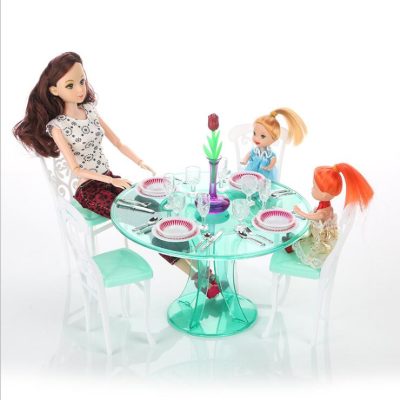Dolls play a crucial role in child development, offering a wide range of benefits that contribute to a child’s cognitive, social, emotional, and physical growth. Here are some key aspects of how dolls influence child development:
- Imagination and Creativity: Dolls serve as blank canvases for a child’s imagination. Children use dolls to create their own stories, scenarios, and worlds, fostering creativity and imaginative play. This imaginative play helps develop problem-solving skills and abstract thinking.
- Language and Communication Skills: Playing with dolls encourages children to engage in conversations, whether they are speaking to the dolls themselves or interacting with others during pretend play. This verbal interaction helps improve vocabulary, sentence structure, and storytelling abilities.
- Empathy and Social Skills: Dolls allow children to practice empathy and develop social skills. Through role-playing and caregiving activities, children learn about nurturing, cooperation, and understanding the needs and emotions of others.
- Responsibility and Organization: Taking care of dolls requires children to assume responsibility. They must dress, feed, and care for their dolls, promoting a sense of organization and routine. This sense of responsibility can extend to other areas of a child’s life.
- Problem-Solving and Decision-Making: During doll play, children encounter various scenarios and challenges that require problem-solving and decision-making skills. They must figure out how to address the needs and wants of their dolls, stimulating critical thinking.
- Emotional Expression and Coping: Dolls provide a safe outlet for children to express their emotions and cope with feelings like happiness, anger, sadness, and fear. Through doll play, children can act out and process various emotional situations.
- Fine Motor Skills: Handling small accessories, dressing dolls, and manipulating miniature objects during doll play enhance fine motor skills and hand-eye coordination. These physical skills are important for tasks like writing, drawing, and using tools.
- Cultural Awareness: Dolls can introduce children to different cultures and customs. Dolls dressed in traditional clothing or representing diverse ethnicities promote cultural awareness, tolerance, and an appreciation for diversity.
- Gender Roles and Identity: Doll play can help children explore and understand gender roles and identity. Both boys and girls can benefit from nurturing and caregiving activities with dolls, challenging stereotypes and promoting empathy.
- Attachment and Comfort: For many children, dolls serve as attachment objects that provide comfort and security, especially during transitional periods like starting school or dealing with separation anxiety.
- Sensory Development: Dolls often come with various textures, colors, and materials, stimulating sensory development. Children can explore these sensory elements through touch, sight, and sometimes even smell.
- Moral and Ethical Development: Through role-playing with dolls, children can explore ethical and moral dilemmas. They can practice making moral decisions and understanding the consequences of their actions in a safe and controlled setting.
In summary, dolls are versatile tools for child development that offer opportunities for cognitive, social, emotional, and physical growth. They encourage imaginative play, nurture important life skills, and help children navigate the complexities of the world around them. Whether playing alone or with others, dolls play a valuable role in a child’s overall development.



















